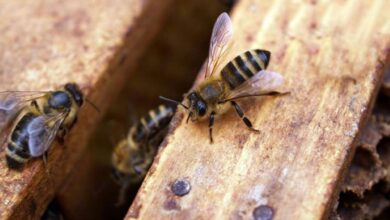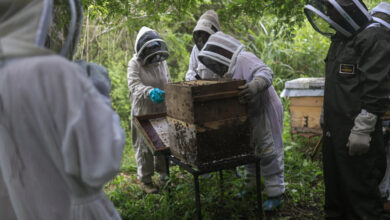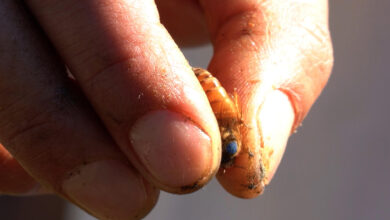The environment during the pandemic
Pests and effects on climate change are some of the environmental events that have emerged as the world continues to drift from the coronavirus pandemic

Asian hornets appeared in the United States during the coronavirus health emergency. / Photo: Pixabay
LatinamericanPost| Juliana Suárez
Listen to this article
Leer en español: El medio ambiente durante la pandemia
As the world and attention turns around the pandemic, the environment continues its course and during the brief months of 2020 we have already seen everything, from fires to floods , and now animal pests that we would never believe.
Killer Hornets
Amid the health crisis facing the world, a wave of potentially dangerous hornets came as a latent threat in the United States. They are the largest wasps in the world, the giant Asian hornet, and thanks to their powerful venom and the aggressiveness with which they operate, they have earned the title of killer wasps.
The alarms went off when a man in Washington state, USA, warned that his bees had been decapitated. It was after the presence of these insects that can measure up to five centimeters was sighted. The first impact on their presence would be the threat to the hives, being able to replicate on a larger scale in the country or even expand across the continent, although their presence has not yet been proven elsewhere.
The mere fact that hornets threaten bees would affect humans, because thanks to these and other pollinators, they contribute to improving biodiversity and finally fertilizing plants, going from flower to flower to pollen. Given their importance, the UN declared May 20 as World Bee Day, to draw attention to the importance of preserving them.
But the problem does not stop there. These species of giant hornets pose a danger to humans. Thanks to their strong poison, at least 50 people die each year in Japan from their sting. According to the Washington State Department of Agriculture, "Stinging from these wasps can be fatal to some humans, even if they are not allergic to bees."
Gypsy moths
In addition to the hornets already mentioned, the massive presence of gypsy moths, also in the United States, causes worry. These generate a risk for nature since they are predators of some plants. This can end up killing extensive forests and gardens.
According to El Tiempo, this species comes from Asia and Europe but has repeatedly caused a stir in the United States. "From 1860 it expanded to the North American country, according to press information, and from that moment on, it caused millions of losses in the timber forests of the country. Now the alert is for the large population there is. "
Also read: COVID-19 lockdowns significantly impacting global air quality
According to the Animal and Plant Health Inspection Service of the United States Department of Agriculture, caterpillars can chew up to 500 types of plants and trees and completely kill them. In addition, another worrying implication of their presence is their ability to reproduce, since they can lay more than 100 eggs.
The ozone layer
Since April, the European Center for Medium-Range Weather Forecasts (ECMWF) had reported that the largest hole in the ozone layer at the North Pole was beginning to close. Finally, the World Meteorological Organization (WMO) stated on May 13 that it was closed completely.
Contrary to what one might believe, WMO reiterated that this did not happen due to the decrease in contamination due to confinement. According to Semana Sostenible, "the hole in the ozone layer was closed as a result of the increase in temperatures in the stratosphere (layer of the atmosphere located between 10 and 50 kilometers of altitude), ending the influx of ozone-rich air from the lowest layers of the atmosphere. "
The great hole had been produced given the low temperatures of the stratosphere during winter. This had been a temporary phenomenon, peaking in March, but scientists did not expect it to stop so quickly. However, there is still no certainty about what caused the opening.




